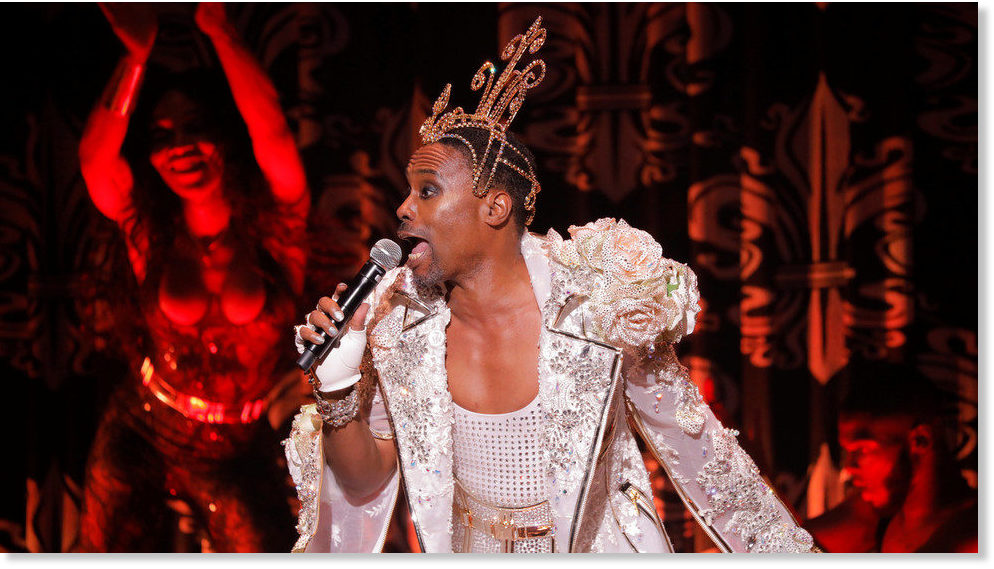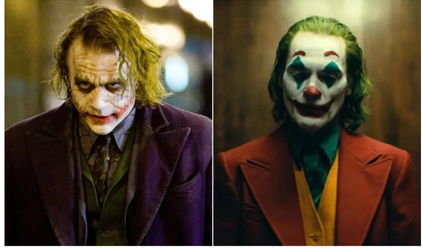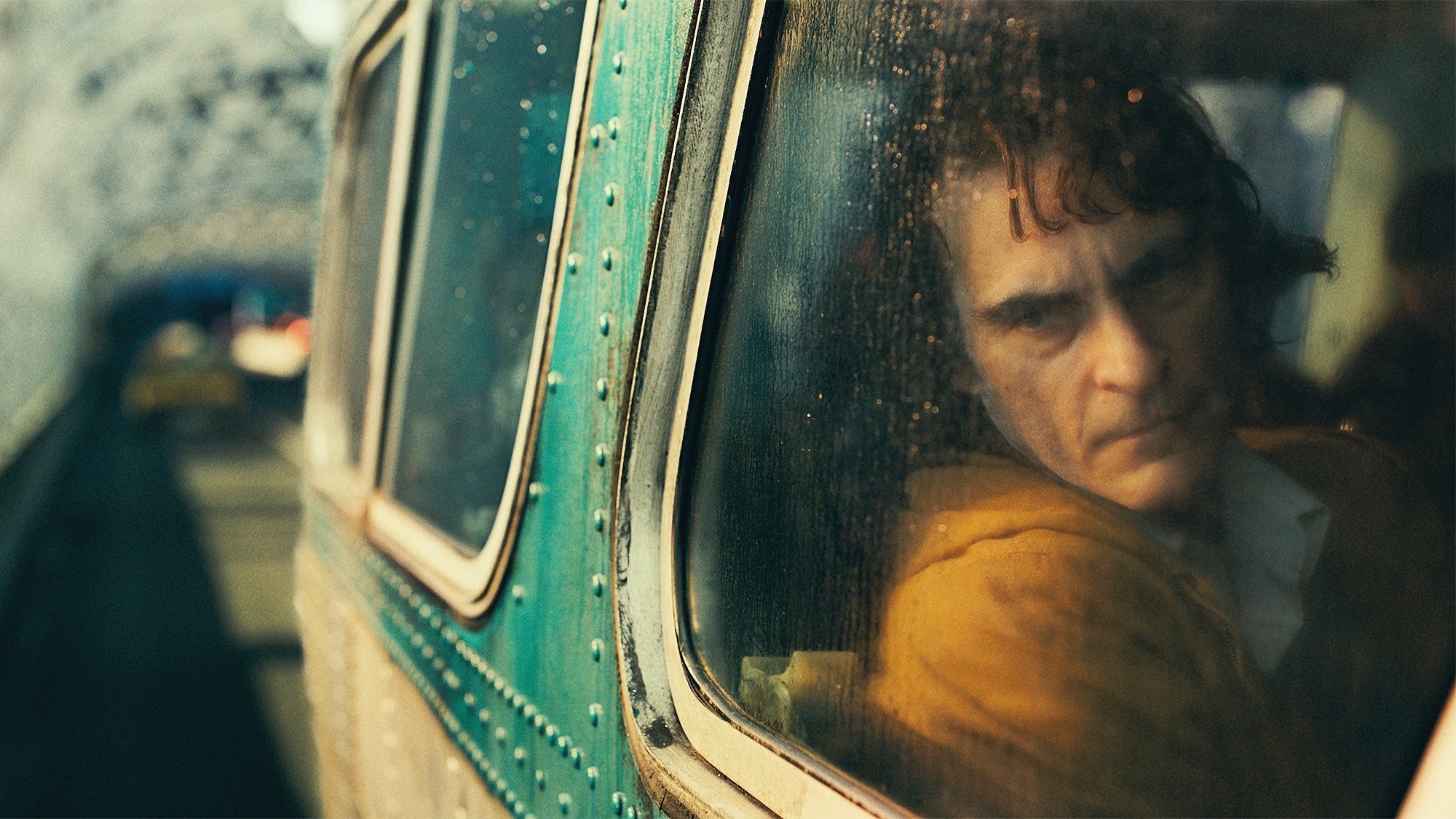The U.S. Army has warned its soldiers away from screenings of the new movie
The Joker, citing
“disturbing and very specific chatter in the dark web” about a mass shooting planned for a movie theater—seemingly validating the concerns of the media establishment’s film critics, who have been shrieking for weeks that the film will inspire real-life gun violence. But if the Pentagon is truly concerned about the cause of mass shootings, it would do well to look in the mirror.
The Joker, the latest Batman spinoff, has been the subject of endless pearl-clutching think-pieces decrying its
“glorification” of vigilante violence. Actor Joaquin Phoenix, who plays the titular character, has been forced to defend it from sanctimonious reporters insisting he has a duty not to lead viewers morally astray.
“I think that, for most of us, you’re able to tell the difference between right and wrong. And those that aren’t are capable of interpreting anything in the way they may want to,” he told
Digital Spy, hitting back against scolds like the
Time Magazine writer
who slammed the film as
“aggressive and possibly irresponsible idiocy” and the famously humorless crew at
Vox,
which dismissed it as
“not edgy” while accusing it of
“playing with fire”—all in a single review.
Phoenix reportedly
walked out of an interview after a
Telegraph writer asked him if the film would
“perversely end up inspiring exactly the kind of people it’s about, with potentially tragic results.” Basing one’s creative decisions on the possibility that someone, somewhere, won’t “get it” is an artistic dead end, yet these self-styled cultural commissars want to impose it on Hollywood—without a hint of awareness that while violent films are screened worldwide, they never seem to inspire mass shootings outside U.S. borders.
The AI algorithms governing speech on social media don’t have a sense of humor and can’t recognize sarcasm or irony. Now humans—those writing for the establishment press, at least— seem determined to emulate them. Like the internet platforms that censor anything remotely controversial as
“hate speech,” film critics denouncing
The Joker claim to speak out of concern for those who aren’t in on the “joke.”
They insist the “angry young men” who might see themselves in Phoenix’s character will take the film the wrong way—essentially claiming that they’re too stupid to tell the difference between reality and fantasy, or too amoral to care. Patronizing in the extreme, this motive indicates the critics don’t actually care about the group they’re supposedly trying to protect from artistic predators so much as fear it. Like anti-war commentators on social media, alienated young men are a foreign species to the critics who feel threatened by that which they do not understand.
The common thread running through the negative reviews is the fear that people will be inspired by
The Joker to commit real-life violence. But as
Vox unwittingly admits,
“you can find much scarier, more shocking stuff by…reading the news.” Angry young men, too, can and do find inspiration by reading the news.
Time Magazine sardonically dubbed the Joker “the patron saint of incels,” forgetting mainstream society only knows what an
“incel” is because Alek Minassian mowed down 10 people with a van in Toronto. No cinematic inspiration required. Indeed, Minassian was inspired by Elliot Rodger, another young mass murderer, who
stabbed and shot six people to death in 2014 because he was frustrated that he couldn’t get laid.
The cathartic value of violent art has been recognized since ancient Greece, and the vigilante violence of
The Joker would seem an ideal conduit for the revenge fantasies and other bloodthirsty impulses of society’s disaffected to dissipate harmlessly. But just as shutting down the notorious anonymous message board 8chan forces the angry young men (and women) who retreat there to vent their “extremist” fantasies after being censored on social media to find other, less benign outlets for their frustrations, banning or censoring cathartic films forces individuals frustrated with their place in society to find an outlet for that frustration in real life.
Do the cultural commissars truly believe it is better to be dead than offended?
The notion that filmgoers will go from sympathizing with Phoenix’s character to shooting up their local Wal-Mart is in itself a fantasy, one much more far-fetched than the film, rooted in a popular misunderstanding of mass shootings. These tragedies are blamed on everything from guns to video games, yet few who discuss them are willing to address the militarism that permeates all aspects of American society.
Military recruiters set up shop near high schools and colleges, while TV and internet ads attempt to seduce the young and impressionable to join up and kill people for Uncle Sam. Popular video games like
Call of Duty acclimate players to fighting a war, even as the increasing popularity of drones turns actual war into a (deadly) video game. Heavily armed “law enforcement” officers pose forbiddingly at airports and train stations, outfitted to look like battle-ready soldiers, while surplus military equipment filters down to the police from a Pentagon so glutted with taxpayer dollars it can’t even use all its weapons (
despite occupying most of the world’s countries).
Even teens who are not belligerently inclined are seduced by the promise
the military will pay for their college—an offer many can’t refuse, with college
costing more than twice what it did 30 years ago and even the least sophisticated professions now requiring some kind of degree. Promised that just four years of service will get their schooling fully paid for, kids are turning over their bodies and minds to a Pentagon that has no problem sending them into whatever Middle Eastern meat grinder is currently raging, to die not just for their country but also for Israel—which USAF Third Air Force commander Lt.-Gen. Richard Clark
admitted in a spasm of honesty last year—and for
Saudi Arabia. Recruiters don’t tell them that the experience will warp their minds and potentially destroy their future.
More than a third of U.S. mass shooters since 1966
have been vets, even though they only
comprised at most 13 percent of the population at any given time. Those who don’t kill others often inflict violence on themselves. They’re 50 percent
more likely to commit suicide than the general population, 10 times
more likely to abuse opioids, and almost twice as
likely to abuse alcohol. And they’re 50 percent more likely than civilians
to become homeless. The military chews up American youth and spits them out much the worse for wear, and even those who never don the uniform are affected by the militarism pervading American society.
Other countries where civilians have access to guns—Switzerland, for example, or Canada—don’t have mass shooting epidemics. Violent video games are played by kids worldwide. Even anti-depressants are not exclusively American, though the U.S. does consume the lion’s share of those drugs and they do play a role in triggering mass shootings, with
multiple studies confirming
they increase both homicidal and
suicidal behavior in patients.
But only one country
spends more money on its military than the next eight countries combined, deeming itself the world’s policeman and occupying
over 70 percent of the world’s countries, some for decades at a time. War is in the air Americans breathe, and this pathology expresses itself in mass shootings. Wiping violent films off the face of the earth won’t help in eradicating the scourge of gun violence any more than barring citizens from legally owning guns will stop those determined to commit an illegal act—murder—with them.
It’s not the violence, it’s who’s directing the violence that counts.
“Woke” critics taking aim at
The Joker are motivated by the same impulses that saw them attack
The Hunt, the now-shelved horror-satire in which liberal elites kidnap and hunt red-state
“deplorables.” That film skewered the cultural and political divide that has yawned ever wider since the election of 2016 (a gap the film’s dead-on satire could have helped to bridge—the script, released after its release was cancelled, has the audience sympathizing with the conservatives who’d been plucked from Middle America to be hunted down by the painfully rich for nothing more than posting anti-abortion comments or racist tweets).
The Joker sees the “evil” title character become a folk hero of sorts for a revolution where where “the rich are taken down, the poor get everything they need and deserve” (a happy ending
Time Magazine felt compelled to mock).
Both films are dangerous for the ruling class—and not dangerous in the same way as a mass shooting, which can be reliably manipulated into a call for more surveillance, more gun control, and more thought control. Art that contradicts the ruling class’ divide-and-conquer programming, that pillories the threadbare fallacy of a meritocratic American Dream, and—worst of all—that suggests there’s something the average American can do to take back their country, is anathema to establishment scribes, from the heights of the New York Times op-ed page to the bowels of the arts section.
The woke brigades are curiously silent about violence when films glorifying
war hit the screen, choosing instead to focus on the “toxic masculinity” and/or racism depicted therein. Presumably if the troops depicted storming the beaches of Normandy in “Dunkirk” were all non-binary people of color, the violence shown on screen would be fine. Even non-war films that depict “good guys” on killing sprees don’t inspire the backlash
The Joker is getting.
Batman, the Joker’s nemesis in the “Dark Knight” films, is another extralegal vigilante, but an absurdly wealthy one, so his killings are acceptable—to both the audience and even onscreen law enforcement. Quentin Tarantino’s films have been
getting slammed for
racism and
misogyny, but the violent revenge fantasies at their core—integral to the stories, unlike racism and misogyny which live in the eye of the beholder—are hardly mentioned at all.
Nor is it just easily-caricatured liberal “social justice warriors” who have turned out in force to criticize
The Joker. Four family members of victims of
2012’s Aurora, Colorado theater shooting, which took place during a screening of the Batman film
The Dark Knight Rises, wrote to Warner Bros. to request the studio advocate for gun safety amid screenings of the film. One wonders why they didn’t do the same for the studios behind any of the dozens of films and TV shows
the Pentagon has “consulted” on since the shooting—films that unabashedly promote war (“Lone Survivor”), torture (“Zero Dark Thirty”), and intel-agency “wetwork”—otherwise known as murder (“Homeland”).
Even 2016’s “Suicide Squad”, which saw a younger, prettier Joker plus half a dozen other stylish villains engaged in the usual kill-crazy rampages and firearms porn, somehow avoided arousing their ire; was it because the bad guys in that film were controlled by the military, the film’s director himself a military veteran, and all the violence thus officially consecrated to God And Country? Or was it that this Joker had a girlfriend?
Theaters in Los Angeles have banned dressing up for screenings of the film out of concern that, like Aurora gunman James Holmes, some Joker wannabe will shoot the place up in costume. A memo from Oklahoma’s Travis County Sheriff’s Office suggests a
“credible potential mass shooting” will occur at an
“unknown movie theater” when the film is released on October 4.
If it does, we can expect blame to be placed everywhere except where it belongs. Angry young men will keep killing innocent people, abroad and at home, until the country wakes up to the reality that endless war leaves the aggressor nation in ruins.


 (my bold)
(my bold)




